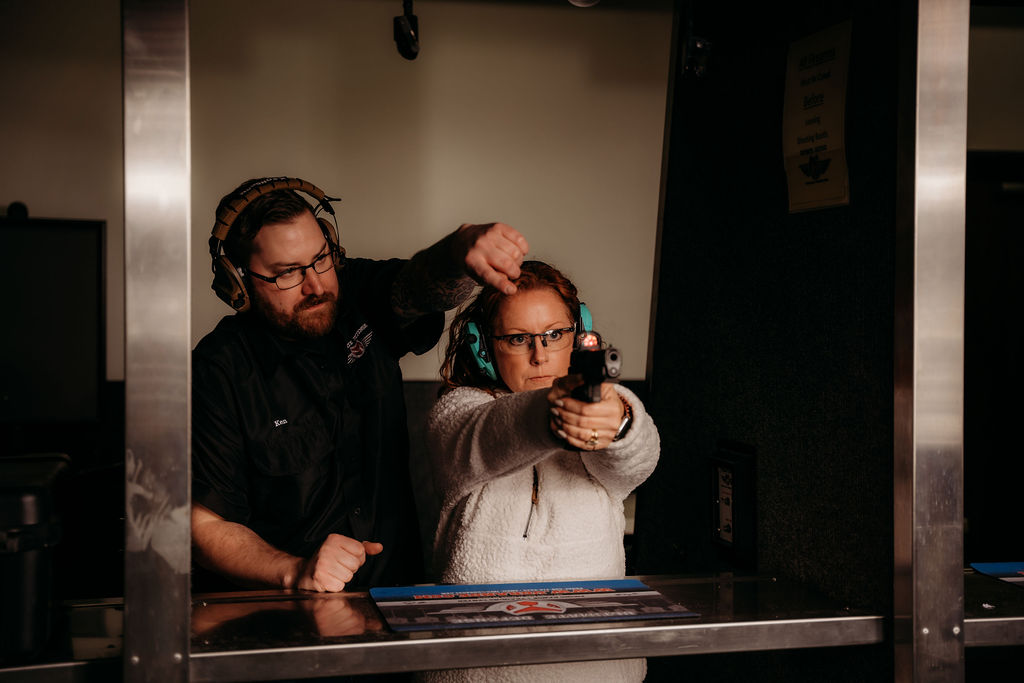In today’s world, discussions about firearms and responsible gun ownership often spark passionate debates. While opinions on the matter differ significantly, there is a widely shared understanding of the importance of responsible firearm ownership. Central to this responsibility is the need for comprehensive gun training. In this blog, we will delve into why gun training is vital in promoting safe and responsible firearm ownership, focusing on practical aspects and personal safety.
Safety First
Safety should always be the top priority when it comes to firearms. Guns are powerful tools that can cause harm when mishandled, intentionally or unintentionally. Gun training plays a pivotal role in teaching individuals how to handle firearms safely. It covers essential topics such as firearm mechanics, safe storage, and responsible use. Without proper training, the risk of accidents and tragedies significantly increases.

Firearms Familiarization
Gun training begins with the basics – understanding the different types of firearms, their components, and how they function. This knowledge is crucial for anyone who owns or plans to own a gun. By knowing how a firearm operates, individuals can avoid accidents caused by mishandling or misuse.
Safe Handling and Storage
Gun training emphasizes the safe handling of firearms, including proper grip, stance, and trigger discipline. Moreover, it educates gun owners about the significance of secure storage solutions such as gun safes or lockboxes. This is essential in preventing unauthorized access, particularly by children, and reducing the risk of firearm theft.
Firearm Maintenance
Regular maintenance is essential to ensure a firearm operates safely and reliably. Gun training teaches individuals how to clean and maintain their firearms properly. Neglecting maintenance can lead to malfunctions, which can result in dangerous situations.
Marksmanship and Accuracy
For those who plan to use firearms for self-defense or sport shooting, gun training improves marksmanship and accuracy. Learning how to aim, control recoil, and manage stress in high-pressure situations can be the difference between hitting the target and causing collateral damage.
Responsible Decision-Making
Gun training is not just about the technical aspects of firearms; it also focuses on responsible decision-making. This includes understanding when and how to use a firearm, as well as the legal and ethical considerations involved. Responsible gun owners are aware of the consequences of their actions and use their firearms judiciously.
Legal Knowledge
Gun laws can vary significantly from one jurisdiction to another. Comprehensive gun training includes education on relevant local, state, and federal laws. This knowledge helps gun owners stay on the right side of the law, avoid unintentional violations, and protect their rights.
Ethical Considerations
Ethics play a crucial role in responsible firearm ownership. Gun training encourages individuals to think about the ethical implications of using a firearm. Understanding when deadly force is justified and when it is not can prevent unnecessary violence and tragedy.
Crisis Management
In high-stress situations, individuals with proper gun training are better equipped to make rational decisions. Training scenarios that simulate real-life situations help gun owners develop the skills needed to manage crises effectively and responsibly.
Community Safety
The benefits of gun training extend beyond individual gun owners. A well-trained and responsible gun-owning community contributes to overall public safety. By promoting responsible firearm ownership, we can reduce the risk of gun-related accidents, misuse, and criminal activity.
Gun Training is an Essential Component of Responsible Gun Ownership
In a society with diverse perspectives on firearms, responsible gun ownership should be a common goal. Gun training is an essential component of achieving this goal. It equips gun owners with the knowledge and skills they need to handle firearms safely, make responsible decisions, and contribute to community safety. By emphasizing the importance of gun training, we can foster a culture of responsible firearm ownership that benefits individuals and society as a whole. Remember, with great power comes great responsibility, and gun training is the key to wielding that power safely and wisely.
